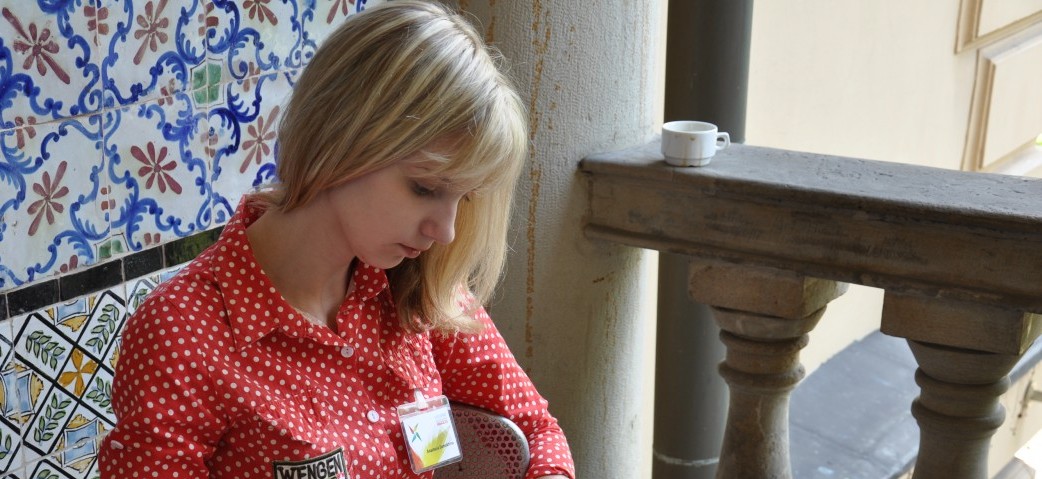
Indeed, it can’t. But what shall be done to push it forward? The answer of Anna Danilewicz and Jean-Pierre Deru is simple. We need more creativity.
To achieve that Europe needs a profound change. Jean-Pierre Deru suggested that the EU should be transformed from inside in a democratic way. He sees some progress in the process catalysed by the crisis. According to the view he expressed during the debate, European Parliament became an important actor during the EU Multiannual Financial Framework negotiations. “Budget turns out to be a political tool” – he stated. This should lead to more inclusivity and equality.
After the short introduction, the participants were asked to present their opinions on the future of Europe. They were rather pessimistic. The crisis would continue, eurozone would collapse and the continent would be suffering from demographic problems.
Nevertheless, there are some positives as well. As the borders would be shrinking, the communication between people from different countries would be easier. This could facilitate international cooperation.
Actually, this international cooperation of the civil societies might be the most efficient tool to affect the sinister political reality. In order to make it people need to build social networks. Therefore the final task of the workshop was a case-study of selected projects’ development strategies. Participants split into a few groups that were working on the possible ways of strengthening the initiatives’ effects, durability or their results dissemination. Obviously, they came up with many inspiring ideas. Be it an organisation promoting the cultural heritage under the witty slogan: “Folk it up!”or an independent NGO representing and supporting the investigative journalists aiming at fostering governance transparency in the Central and Eastern Europe – all the ideas presented by the Visegrad Summer School were very stimulating and shall be turned into practice.
Also the informal ending of the day revealed participants’ creativity. The traditional MultiCOOLtural garden party began with national presentations. Obviously these were not boring talkings based on wikipedia but brilliant and always amusing interactive shows. Nevertheless, that was only a introduction to a great party during which the participants might try the best national alcohols and take part in spontaneous multilingual karaoke. All that gave a new dimension to the theoretical considerations on common identity or values we share. Sipping the centuries of the Armenian ancient history confined in a glass of Ararat cognac or listening to the enchanting Georgian song sung by Salome Ugrekhelidze and Irakli Samkharadze one cannot avoid the fabulous feeling of the community or even family. We are not the same. Some of us speak the mysterious Hungarian language or come from places that are so remote from each other like Prague and Tibilisi or Prishtina and Vilnius. We are all different and adore our diversity. What we share is a mutual fascination and friendship.
Ziemowit Jóźwik













